Even acknowledging the production upheaval caused by COVID and the strikes, I would personally never consider a year dominated by the patron saint of NYU theater kids a “down year in film.” Timmy aside, there were so many movies that captivated me in 2024 that I squeezed more entries into my Honorable Mentions than ever before. There’s just too much to recommend!
So much so that I’ll just get right to it—but you can find the full ranked list of every 2024 release I watched this year here.
10. Anora - dir. Sean Baker
The consummate Sean Baker movie, meaning he takes his camera and looks without judgment at all different types of people—dancers, oligarchs, henchmen—until they cease to be types at all and just become people, acting in all the unexpected ways people do. Like his other movies, this one follows its characters as they loop around each other, glancing all of the big ideas that real people glance and spending about as much time and explicit thought on them as real people do—but still they’re there, coloring and deepening what also happens to be the funniest movie of the year.
(For what it’s worth, I don’t know that this is Baker “massively leveling up” or “finally figuring it out” the way many are claiming—maybe those people just didn’t vibe with The Florida Project or Red Rocket the way I did, but I think both of those films have slightly more going on under the surface than Anora. Not that Anora doesn’t have plenty going on, and I’m thrilled for Baker to be getting mainstream acclaim, but let’s respect the classics, please.)
9. Nosferatu - dir. Robert Eggers
Eggers doesn’t have a new take on a story as old as cameras so much as he takes it really, really seriously; you get the sense that if he thought drinking blood would’ve given him a better sense of the realities of this world, he would’ve done it.
And we probably would’ve felt the difference, too. It’s amazing just how much he’s able to add to a prolifically retold story by simply telling it straight, combining the best elements of the 1922 original, Herzog’s existential dread, and Coppola’s bloodlust with Eggers’ own knack for painstakingly researched detail. That’s where the devil lives, anyways, and by fleshing out this world with a painter’s eye (every desaturated frame looks like a Rembrandt or a hellscape or both) and hanging fresh little (dis)grace notes on the beats we already know, he immerses us so viscerally in this recurring nightmare that your mind wanders into entirely new readings, if only to escape what it’s being shown.
The fitting exceptions to the color-drained palette are the twin reds of blood and fire, and by the end of Nosferatu, you might newly relate to feeling simultaneously drained and invigorated.
8. A Complete Unknown - dir. James Mangold
I don’t care if a movie captures the true Bob Dylan as long as it evokes an interesting idea of him. Through a freewheelin’ series of vignettes and performances (conservatively, this has twice as much music as Wicked), we get the picture of a clear-hearted if not pure-hearted drifter who blows into town, acts a mess, channels The Muse, and blows on out again. It’s not a wholly sympathetic portrait, which makes it feel more honest. It would’ve cost Bob nothing to put other people first—but then, it might’ve cost us these songs.
Appropriately, Chalamet (in perhaps the riskiest swing of his career and the most likely to earn him an Oscar) is not impersonating Bob so much as he’s channeling Bob channeling the music. It’s sort of the inverse of Gaga’s A Star Is Born performance in that we already knew Timmy could act, but we didn’t know he could sing like this, nor especially that he could act while singing like this. The songs speak for themselves, but every little introverted tic or sidelong smile he casts while singing them adds layers to the performance. Adding one more layer is the implicit channeling of his own experiences with celebrity; it’s a bit like if a Jonas Brother played a Beatle, and beyond impressive, it’s riveting.
7. Sing Sing - dir. Greg Kwedar
A little biased here, as I had the pleasure of hosting director (and Texas A&M Business Student Council alum) Greg Kwedar as a guest speaker back when I was a student and Greg was a lesser-known indie filmmaker. Well, he’s known now, and deservedly so—the movie he’s crafted alongside co-writer Clint Bentley and a cast comprised largely of formerly incarcerated actors is transcendent, the kind of art that would be decried as artsiness for artsiness’s sake if it didn’t so effectively (and affectingly) affirm the life-changing power of art in the first place. After all, most of the people onscreen really participated in the prison arts program (Rehabilitation Through the Arts) portrayed in the film, so when they act moved, you believe them.
I had the chance to talk with Greg again (along with Clint and producer Monique Walton) for BW/DR, and they spoke to the power of art better than I ever could. But I truly think there’s something for anyone in Sing Sing, which earnestly embodies a hope not untethered from reality, but drawn from it.
6. Civil War - dir. Alex Garland
Fittingly, this was by far the movie I had the most arguments about this year—about whether it sucks or rocks, says too much or doesn’t say enough. Maybe that means its purpose isn’t clear, but I think that’s what interests me most. I’m fascinated by a movie unconvinced of its own justification for existing.
Garland’s movie asks: can you perfect the art of war photography (is it art? It moves like art, grips like art) without doing it for art’s sake? And if not, does it matter? The movie’s very existence echoes those questions: can you make a war film without glamorizing combat? If that was Garland’s intent, then he failed—but I don’t think it was. Applause broke out in our theater when a character committed “heroic” violence, only for the claps to be immediately snuffed by an image of the unheroic kind. And yet, they were clapping for a reason; the movie thrills nearly as much as it horrifies, then dares us to reconcile the two.
It’s possible the movie gets a little too cute with its ending. But if all its self-reflexivity ultimately only points back at itself—a photographer shooting another photographer—forgive me if my adrenaline still spikes from watching a beautiful snake devour its own tail.
5. Furiosa: A Mad Max Saga - dir. George Miller
Miller’s recent quote about dialogue only standing in the way of the next flamethrowing-paraglider chase (I’m paraphrasing) is instructive for his latest opus: Furiosa’s surprisingly abundant dialogue says far less than what the movie conveys with its more elemental symbols: a seed, a doll, an arm.
Warlords and their sycophants are constantly babbling and feuding around Furiosa, but so little of it matters to her beyond the pain they cause her and the existence (resistance?) she can carve from their angry empires, dancing through the sandstorm on her way back home. That the fruit pit she’s carrying as a reminder of that home is actually the first seed of a new sanctuary she doesn’t realize she’s planting is the most beautiful touch in a film full of them, right alongside the idea that her eponymous fury could be harnessed for something more righteous than the simple savagery the wasteland begs. Beyond vengeance, indeed.
Some were understandably disappointed that this is structurally and spiritually closer to Three Thousand Years of Longing than Fury Road, but it’s so cool that George can knock out some of the best action you’ve ever seen almost as a sideshow1, and it’s nice to know that he has more than one kind of desert masterpiece in him.
4. The Brutalist - dir. Brady Corbet
What to say about a three-and-a-half-hour (with intermission!) new American epic, shot in gorgeous VistaVision 35mm, scored like the composer’s life depended on it, written with pragmatic but expressionist purpose, and acted with virtuosic vigor? “Thank you,” if you’re a certain kind of pretentious cinephile I can’t in good faith claim not to be. And yet I think Corbet’s film will enthrall anyone who gives it their time, even people who have never seen a Mubi tote in real life or who think the Criterion Closet is a thrift store; there is enough movie here for something in it to move anyone.
More to come from me on The Brutalist and the Brutalism I think its filmmaking aspires to, but for now I’ll just implore you to take the leap. It may not take you where you’d expect, but both the journey and the destination are rewarding and then some.
3. Challengers - dir. Luca Guadagnino
Challengers shares its best trait with one of its characters: at any given moment, it knows exactly what it is. It’s a hard-court soap opera; it’s a live-action anime. It turns its players into art-pop versions of Ted Striker in Airplane!; it makes a simple double fault feel like an eternity, and like the most exciting action of the year.
In other words, it’s never been more fun to watch someone take a metaphor and beat the pulp out of it with a racket. Faults, advantages, tiebreaks—this stuff writes itself. Ball is life, so these characters do everything (kiss, fight, makeup) like they’re playing tennis, and they play tennis like they’re doing everything else. What else is there? It doesn’t matter whether it’s an argument or a ball being served; Reznor and Ross’s killer score kicks in just the same. Every time you think the metaphor is running out of room, some unexpected parry or lob returns it to play, snapping our heads back to the action with a fresh buzz. And powering it all is the tension drawn from one simple, supercharged fact: he may be Mike Faist, and he may be Josh O’Connor, but neither of them is Zendaya. Who is?
2. Nickel Boys - dir. RaMell Ross
Photographer, documentarian, and former Georgetown point guard RaMell Ross solves for any issues I had with Colson Whitehead’s effective but prosaic Pulitzer-winning novel by finding the wondrous and the imaginative in every cell of that story without changing a thing. He does so with one of the most singularly effective cinematic choices I can remember: framing the entire film through the POV of its two main characters (with a few quick, brilliant exceptions).
Apart from the obvious empathy this subjectivity inspires, it also unlocks the story (and the film) in so many other ways: by underscoring the individuality of experience under a broad system of oppression; by honoring the beauty that inhabits even the hardest lives; and by giving us a cornucopia of exquisite images that feel all the more magical for the fact that their magic is obtainable—after all, these are just things Elwood and Turner are seeing, and seeing the wonder in. Moss makes us feel like we can see the wonder, too.
How often can say you’ve seen something truly new?
1. Dune: Part Two - dir. Denis Villeneuve
In a year that gave us grand cinematic achievements, and thrilling crowd-pleasers, and game-changing evolutions of the form, only one movie had the ambition and vision (and let’s be honest: worms) to Dune us—and I mean really Dune us.
To call back to last year’s number one film, and not to be all “guy who’s only seen Boss Baby,” but there is a lot of Oppenheimer in Villeneuve’s latest. Images swirl, tower, obliterate; people accrue, bicker, explode. At the center of it all, a Great Man shares his self-fears with anyone who will listen before betting on his own hype to assuage them. In one, atoms ignite atoms until we’re all a crisp; in the other, water-drunk cells spur each other on until they’ve all turned sinister.
Like our dwindling movie star ecosystem, it all hinges on Timmy. Where some were frustrated by the supposed lack of a satisfying reason for his Lawrence of Aslaybia (sorry) to lean into holy war, I think they’re correctly reading the fact that there isn’t one. Maybe it’s for political freedom, maybe it’s for petty revenge; maybe he’s a choiceless vessel for predestined futures, or maybe he’s just high on his own supply. Whatever his reasons, there’s no getting around the fact that he both liberates the Fremen and incinerates the world; another living paradox dropping another bomb to end one war and begin another—no wonder Nolan and Villeneuve are such good friends.
Honorable Mentions (now with 50% more mentions)
College GameDay with Guest Picker Timothée Chalamet
Marking this here as my third favorite Timmy performance of the year and the moment his A Complete Unknown press run became generational. Was it scripted? Did he do his own research? Does it matter? No, maybe, no. Chalamet is a noted ball-knower, but more than that, his show-stopping appearance as guest picker solidified him as the people’s princess, winning over a wide swath of crucial demos who would never watch CMBYN even if they ever learned what it is. If two brilliant on-screen performances this year weren’t enough to prove it, here’s Pat McAfee’s dumbstruck face to confirm it: Timmy’s the biggest star we’ve got.
Red Rooms - dir. Pascal Plante
Plante’s crypto-thriller (comps to Fincher and The Girl with the Dragon Tattoo are well earned) about an alleged serial killer’s trial and the women obsessively attending it is nervy and unique—a character study and a cultural study fused into one hypnotizing package. I couldn’t look away even when I wanted to.
Kneecap - dir. Rich Peppiatt
The Irish answer to Trainspotting, not by copying that film’s kinetic energy but by pulling from its own electric source: three Gaelic rappers (playing themselves!) with enough attitude to power Ireland. If you, like me, graduated from Wikipedia pages about The Troubles to Patrick Radden Keefe’s book about The Troubles to a guided cab tour through Belfast about The Troubles, then you, like me, might be kicked in the teeth by this hyperactive musical tour of Belfast then, now, and next.
A Real Pain - dir. Jesse Eisenberg
Touching and well observed. I don’t not relate to several of Eisenberg’s neuroses (maybe that’s just a result of him having so many and conveying them so well), and I certainly understand feeling like your emotions—the ones everyone around you seems to access with ease—are trapped behind your thoughts. The specific detail of a character who simultaneously judges people for not being able to contain their feelings while envying their catharsis... well, he got me! Really great Kieran Culkin performance, especially impressive for how it recontextualizes some of the quirks that made Roman such an interesting character to build an interesting character in a completely different mode.
A Different Man - dir. Aaron Schimberg
Takes a fairly simple idea and runs it through a (Charlie) Kaufman-esque kaleidoscope until it sparkles and dances with complexity. The kind of meta that would’ve blown my mind with its sheer existence a decade ago, but that blows my mind now with its purposeful deployment of meta-ness (it’s a lot closer to Synecdoche, New York than Deadpool and Wolverine). To top it off, you get three of the best performances you’ll see all year and a comedic range equally capable of giving you heart-in-throat cringe laughs and dumb-funny wordplay gags.
Rap World - dir. Danny Scharar and Conner O’Malley
Maybe the most accessible pick on my list, considering it’s all of 56 minutes and available for free on YouTube. This is lo-fi, neorealist Popstar, and the least depressing thing Conner O’Malley has ever made (and thus my favorite). I defy any group of millennial guy friends from the suburbs to claim they never spent a long night failing to make a rap album, and this captures that inert spirit in all its pathetic glory. So relatable it should hurt, but so funny it doesn’t.
Strange Darling - dir. J.T. Mollner
A lean, mean blast of an indie thriller, chock full of the kind of stylized flash that often gets qualified to death (“impressive for a second feature,” etc.) but that always gets me to lean in. Let people swing big!! They have plenty of time to be austere later, if they want (I don’t). Best to know absolutely nothing going in, but I had a couple of things tipped off and still found plenty to thrill me in the never-ending slalom of its plot.
We Live in Time - dir. John Crowley
Reminiscent of the indie romantic dramas I used to love, but elevated by a pair of world-class actors, well matched for their sensitivity on and off-screen; who’s better than them at conveying the feelings between the feelings? The time-skipping structure also shifts the tension from “what will happen” to “what does it mean that this happened, too?”, which makes for something less weepy and more layered than the typical version of this story, mirroring the way we actually engage with memories.
Rebel Ridge - dir. Jeremy Saulnier
Never not smart, cool, or thrilling, and often all three at once. Give Aaron Pierre the keys to the kingdom—quick, before he has to take them. We should get three or four of these a year, and maybe we would if they were as easy to make as Saulnier makes it look.
Kinds of Kindness - dir. Yorgos Lanthimos
What’s the opposite of a palate cleanser? Of course, my problem with Poor Things was that it saw an instinctively provocative filmmaker playing at palatable, so some acidity was due. Thankfully, this is three hours of Yorgos back in sicko mode, making up for a film where we Got It within the first ten minutes with one where we can never feel comfortable for a second about what’s coming next. While there are still a few obvious elements here, they’re surrounded by more curious threads leading off into all kinds of dark corners. Even if it’s unclear whether Yorgos knows what’s hidden in every one, I’m just glad he’s looking again.
Hit Man - dir. Richard Linklater
Just as Powell is charming enough that some slight cognitive dissonance (he’s too cool to be fully convincing as a nerd) is worth the payoff when his extremes finally meet in the middle, the fact that Hit Man’s sexiness and humor aren’t always perfectly integrated doesn’t matter as much as the fact that most movies would kill to be as sexy or as funny as this one, much less both. The plotting is clever and light, the chemistry between Powell and Arjona is… uh, kind of insane, and the third act is so satisfying that people actually started clapping during my showing.
Five More for the Road
Problemista - dir. Julio Torres - This surrealist comedy is a little scruffy around the edges, but nothing to dull the shine on an object so original and kind that it could only be the product of someone who comes honestly by both traits.
The Order - dir. Justin Kurzel - Accepting that good causes can be used as justifications for selfish drives (or stopgaps for emotional deficiencies) is a lot harder than accepting that evil ones can, but Kurzel at least makes us think about it during this throwback cops-and-robbers flick—in between bracing heists and thrillingly staged shootouts.
Longlegs - dir. Osgood Perkins - Maybe evil wasn’t quite emanating from the screen like the superb marketing promised, but at its best, evil was certainly radiating within the screen, emanating straight from Cage’s rock star performance.
The Substance - dir. Coralie Fargeaut - The best movie on this list that I know for a fact I’ll never see again; unsubtlety is only a sin if you were trying to be subtle—otherwise, it’s an art.
The Beast - dir. Bertrand Bonello - Takes a fascinating 1903 novella about the self-fulfilling nature of FOMO and makes adaptation origami out of its pages, folding its ideas into a three-dimensional exploration of related anxieties (re: love, connection, purpose, earthquakes) that proves some fears never go extinct—they just keep evolving.
Furiosa has more action than 70% of action movies, and better action than 99%






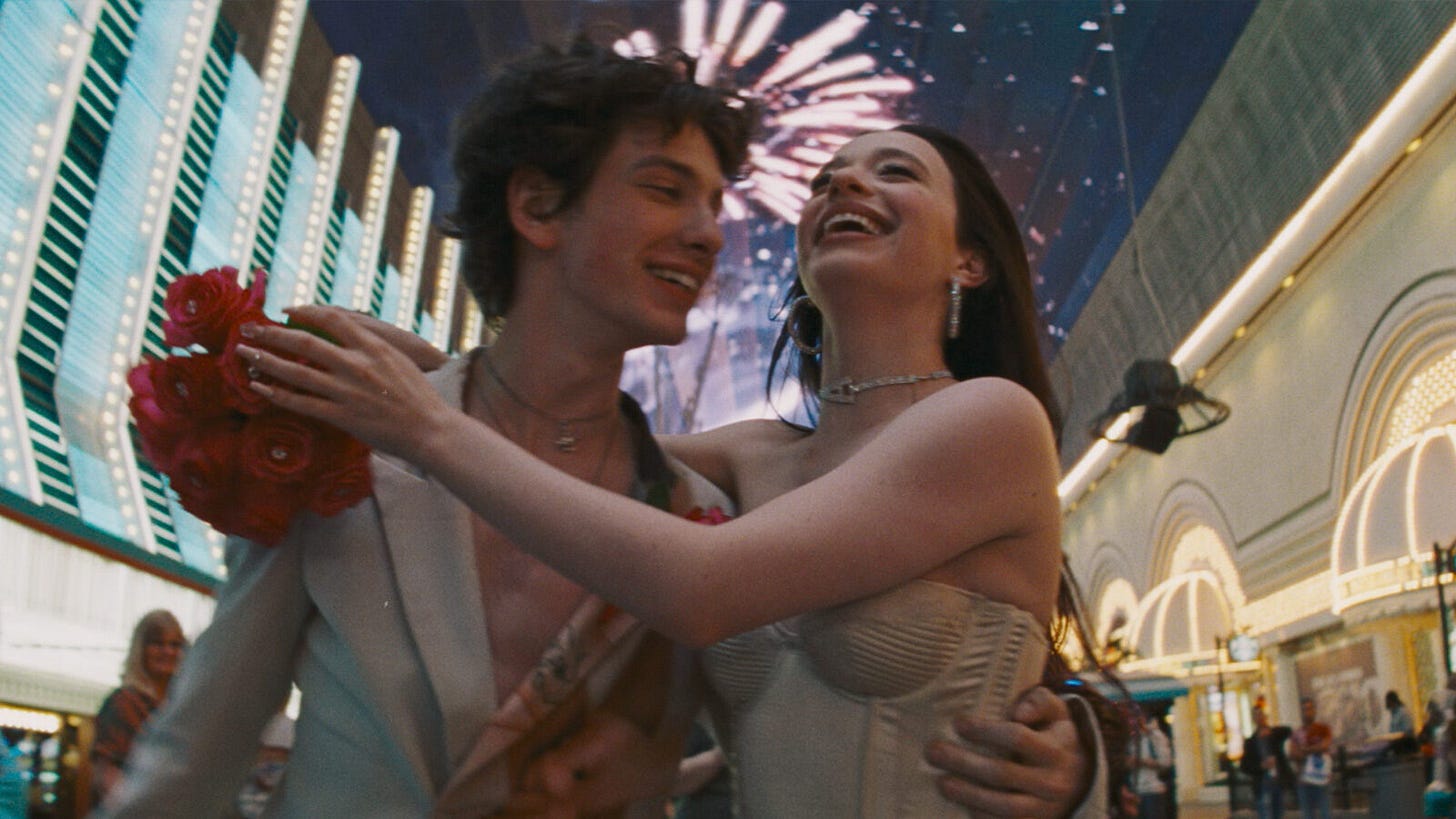
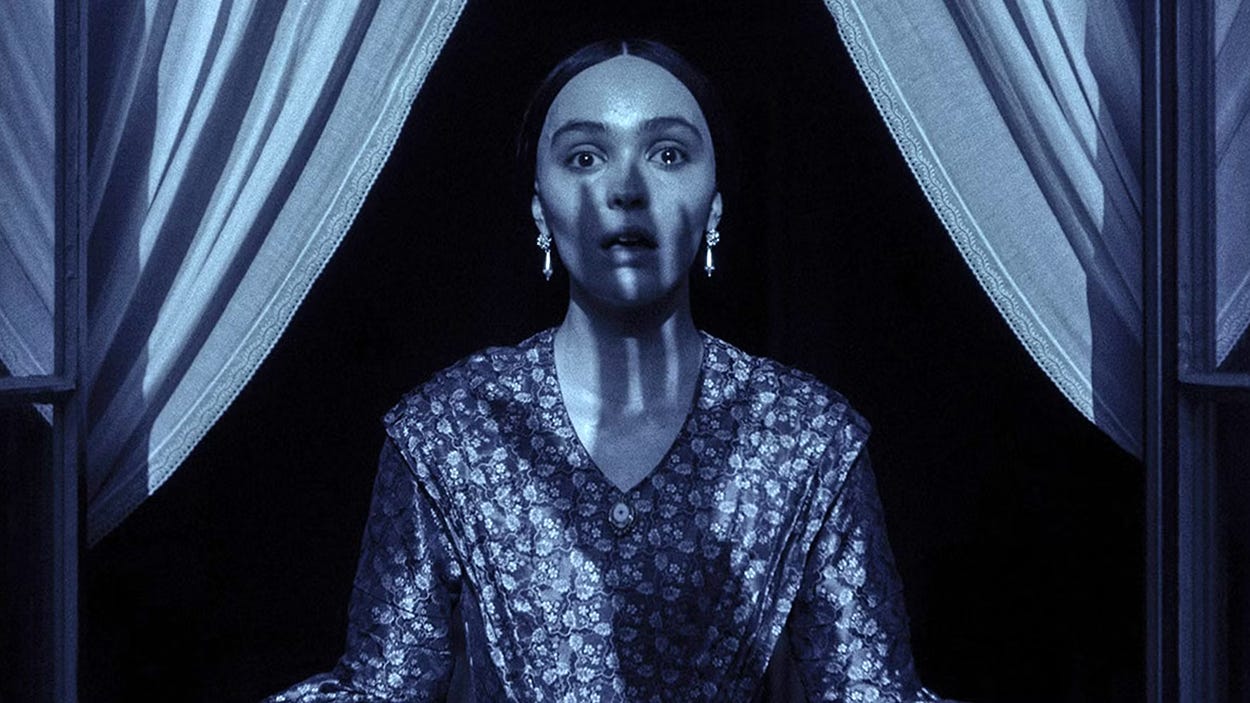
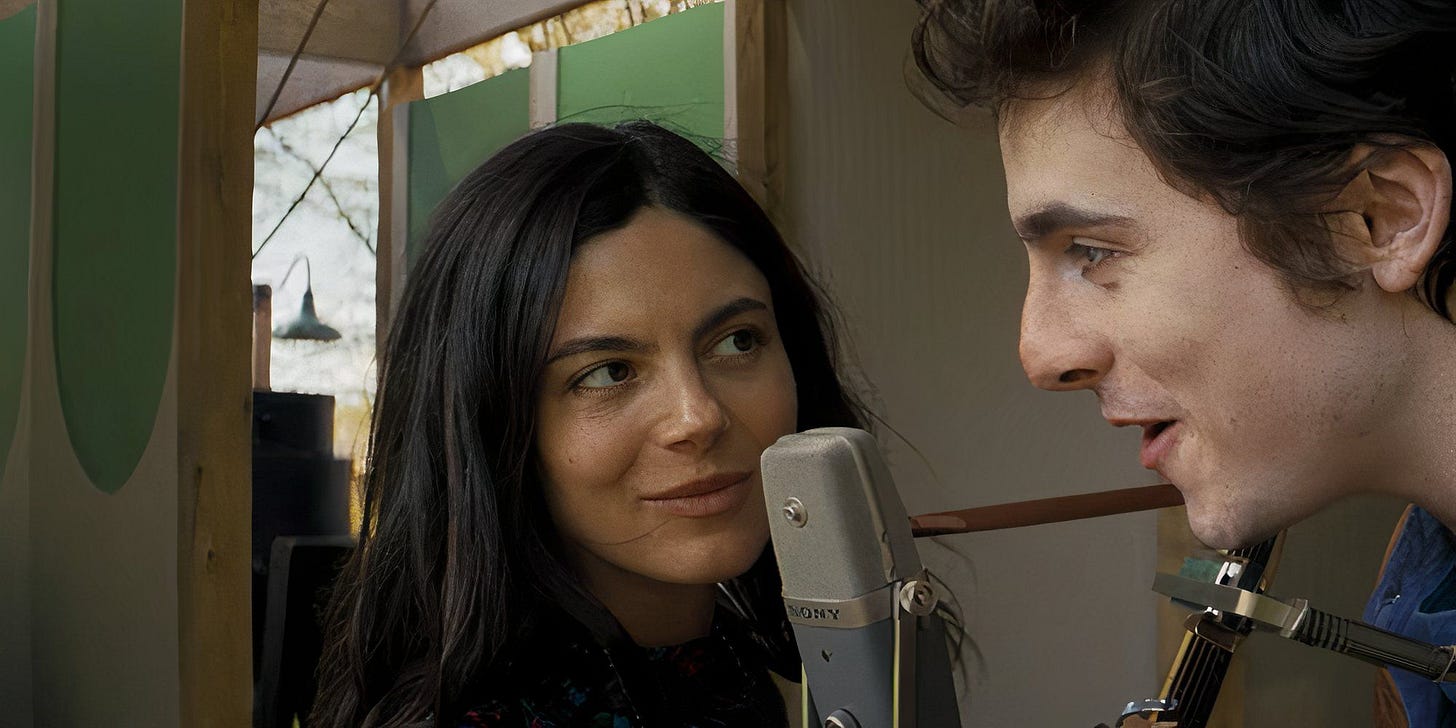
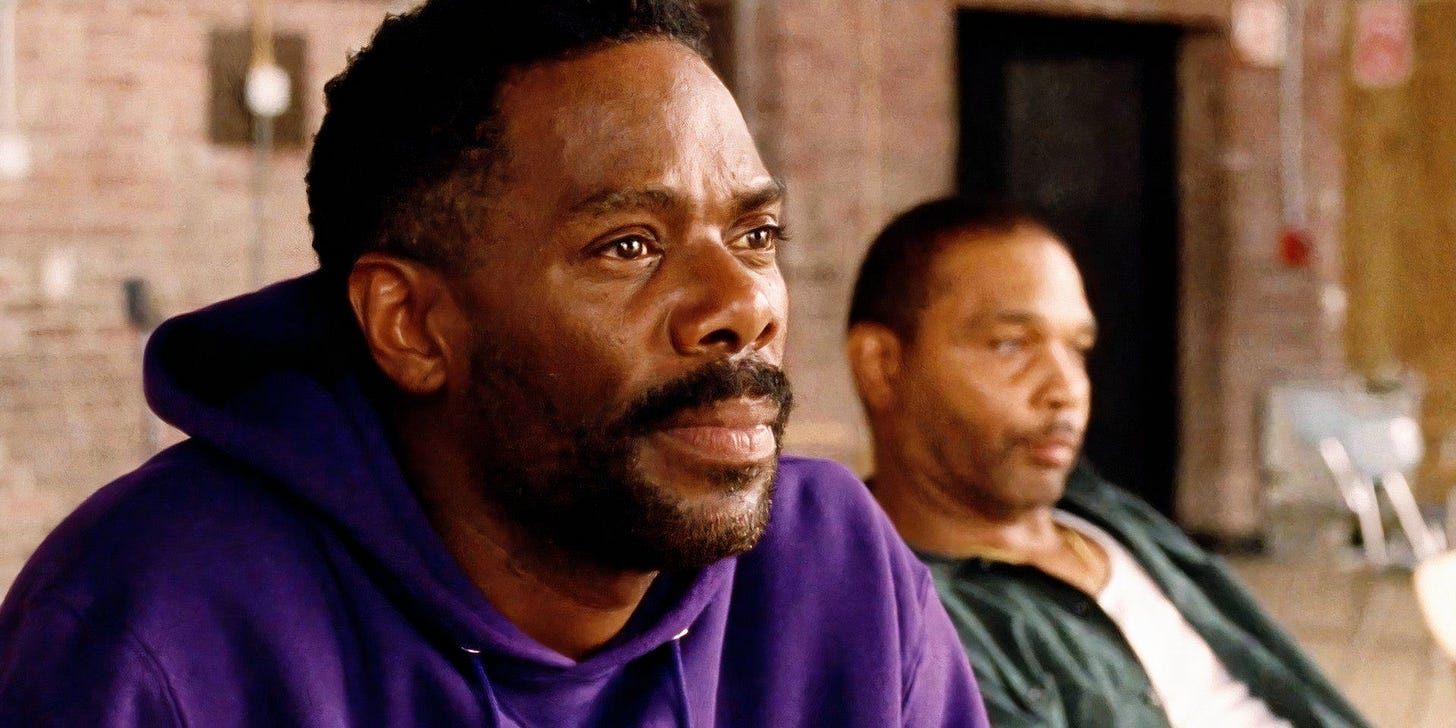
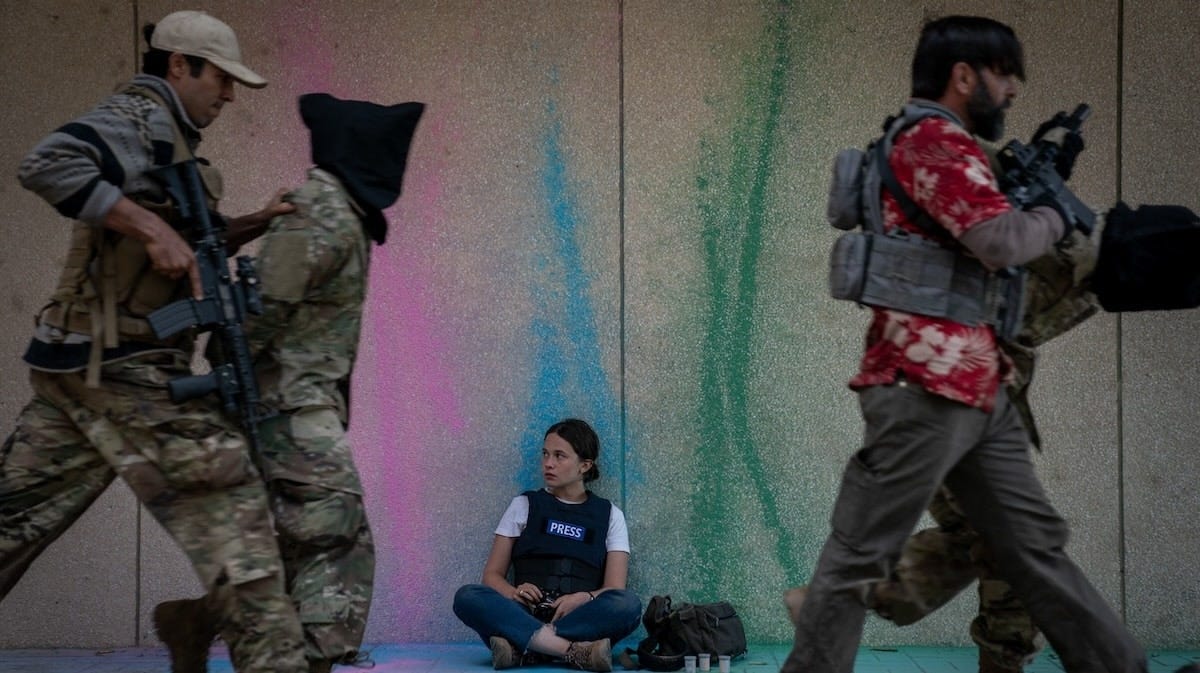
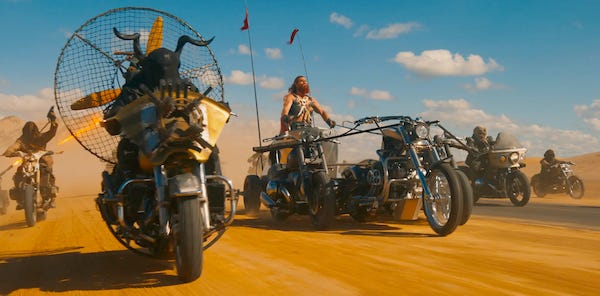
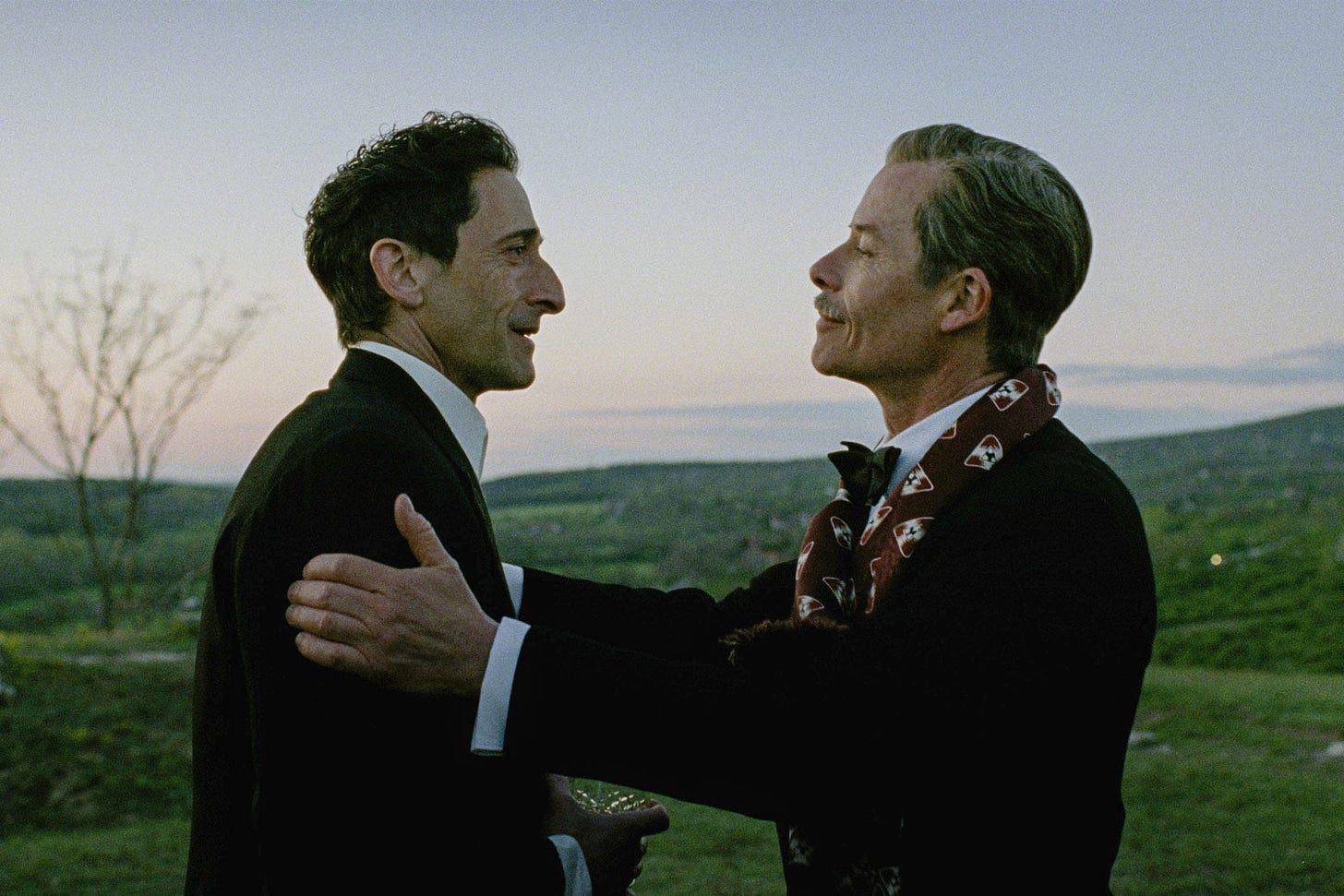

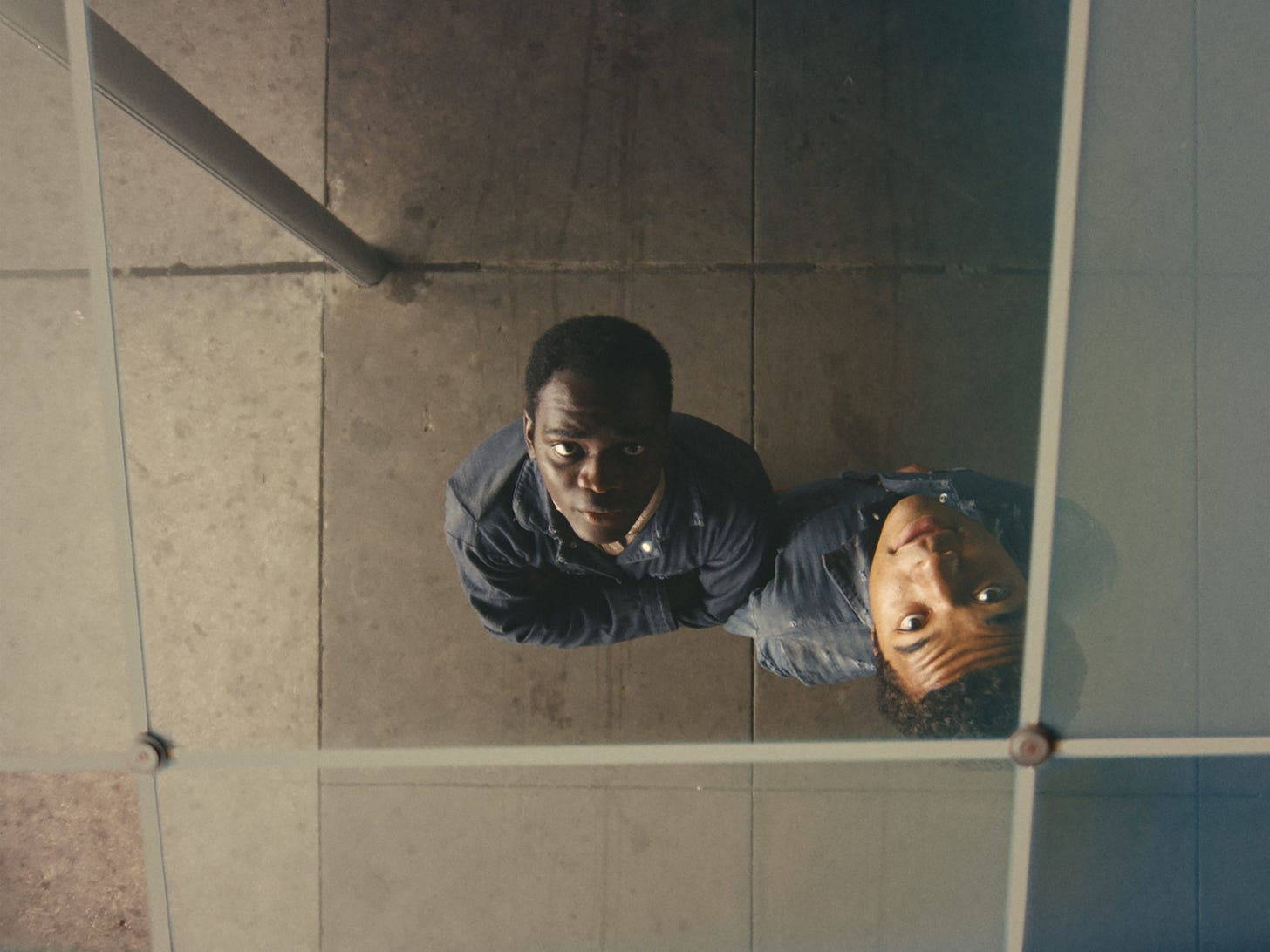
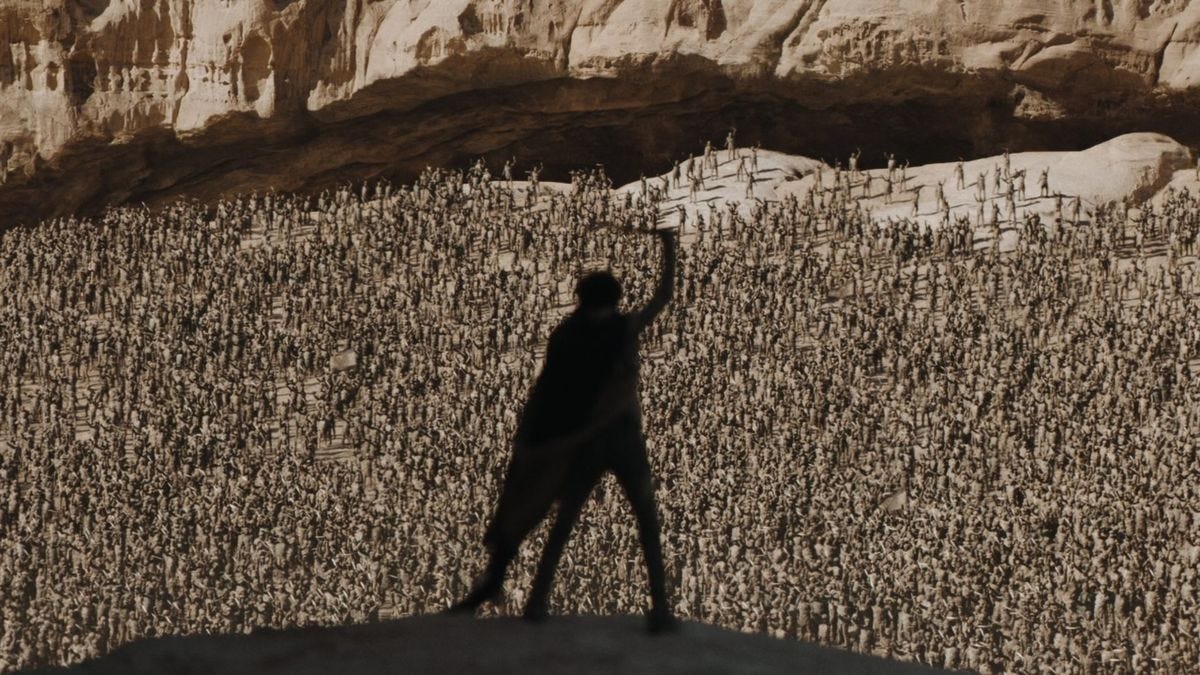
Every year you level these up! Brilliant, witty, thoughtful write ups all around.
For me, it’s a tie between The Brutalist and A Real Pain. All the other ones on your list (that I’ve seen) are up there as well — well, besides Civil War ;)
We shall champion Furiosa into Valhalla